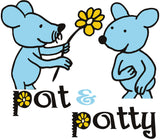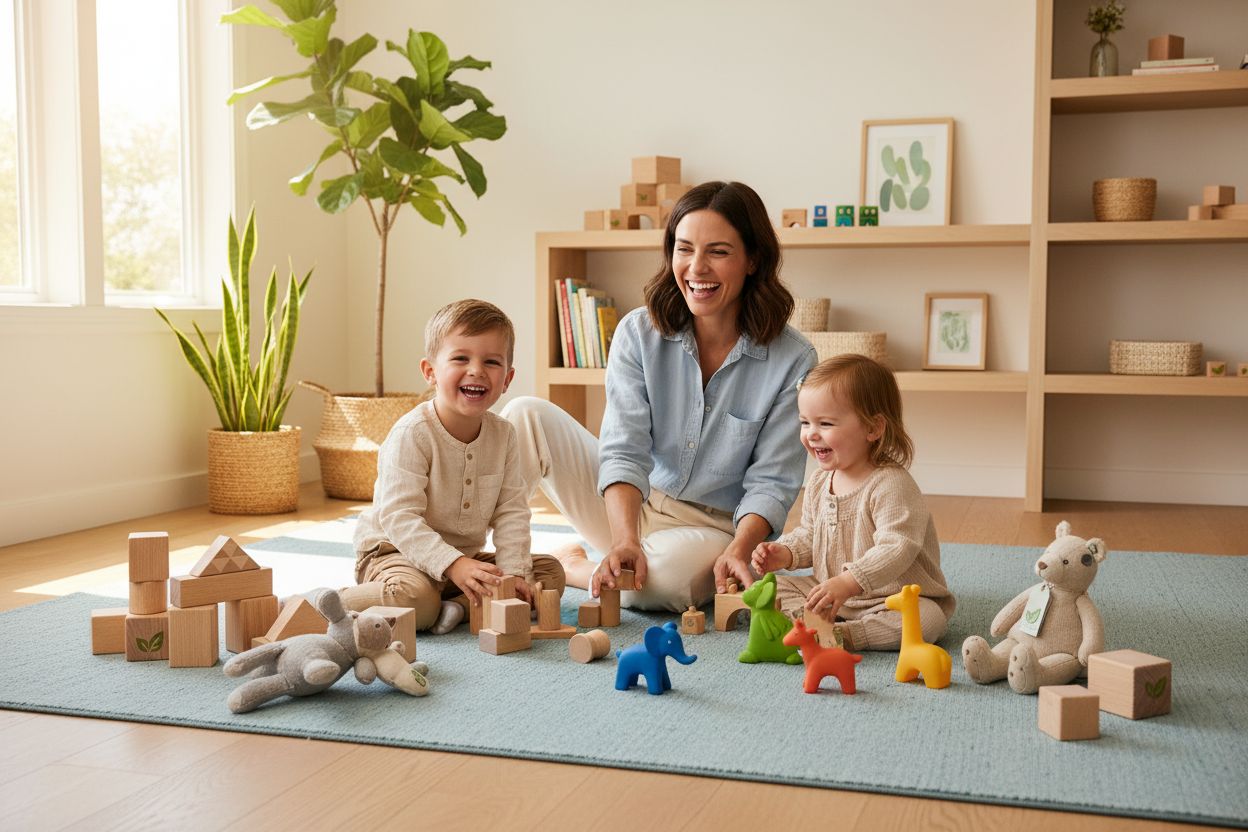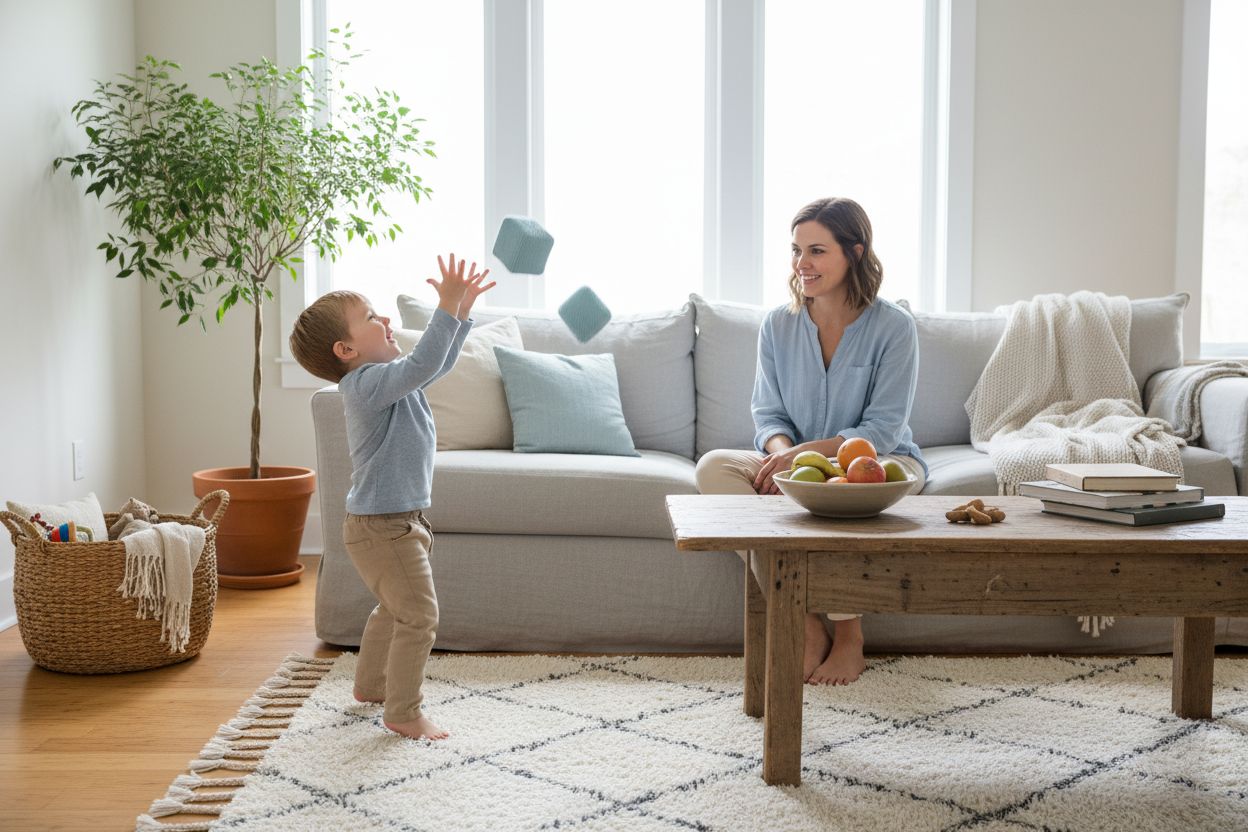Wooden toys often look simple and are made entirely of natural materials. Surprisingly, handmade wooden toys are not only safer but can also last for generations . What many people don't realize is that these classic toys have a proven greater impact on children's creativity and development than many modern alternatives.
Table of contents
- Wooden toys for creative minds
- Construction toys for technical skills
- Role-playing games for social skills
- Puzzles for logical thinking
- Musical instruments for musical talents
- Educational toys for language and numbers
- Outdoor toys for movement and discovery
- Sensory toys for tactile experiences
- Eco-Friendly Toys for Environmentally Conscious Parents
- Handmade toys for individual development
Quick overview
| Takeaway | Explanation |
|---|---|
| Wooden toys promote creativity. | Children develop their creative and motor skills while playing with wooden toys. |
| Construction toys strengthen technical understanding. | These toys help children learn logical thinking and problem-solving skills through play. |
| Role-playing games develop social skills. | By acting out different roles, children learn empathy and communication skills. |
| Puzzles promote logical thinking. | They support children’s ability to concentrate and their spatial understanding in a playful way. |
| Musical instruments promote musical talent. | With musical instruments, children develop a sense of rhythm and fine motor skills, and strengthen social skills through making music together. |
1: Wooden toys for creative minds
Wooden toys offer children a unique opportunity to develop their creativity and motor skills. This traditional form of play holds special significance in early childhood education and development.
Through wooden toys, children not only learn to play but also develop important cognitive and sensory skills. The natural materials promote a direct connection to the environment and stimulate sensory perception. Why handmade toys are better for children explains the profound educational benefits of such toys.
The advantages of wooden toys are manifold:
-
Closeness to nature : Children develop a feeling for natural materials
-
Sensory stimulation : Different textures and weights promote perception
-
Durability : Wooden toys are robust and can be used across generations
When playing with wooden toys, children learn basic concepts like shapes, colors, and spatial relationships. Puzzles, building blocks, and geometric shapes aid cognitive development. The open structure of such toys allows children to let their imaginations run wild and create their own worlds.
High-quality wooden toys are often handcrafted and produced with the utmost care. This not only guarantees safety but also teaches children an appreciation for artisanal craftsmanship. Each wooden toy tells a story of craftsmanship and attention to detail.
For parents looking for sustainable and developmental toys, wooden toys are an excellent choice. They combine learning, fun, and environmental awareness in a unique way.
2: Construction toys for technical skills
Construction toys are an excellent educational tool for fostering technical and spatial reasoning skills in children. These toys help children understand complex structures and develop their creativity in a systematic and logical way.
Scientific studies show that construction toys support the development of important cognitive skills. The Importance of Durable Toys: Understanding and Appreciating explains how such toys contribute to long-term learning development.
The main advantages of construction toys include:
-
Spatial thinking : Children learn to understand and build three-dimensional structures
-
Logical problem solving : You develop strategies for assembling complex constructions
With classic building blocks or modern construction sets, children learn basic engineering principles through play. Lego, wooden blocks, or magnetic construction systems challenge children to expand their imagination and technical understanding. Engineering thinking is fostered through play as children design and implement their own models.
The variety of construction toys allows children to explore different levels of difficulty. From simple wooden blocks to complex robotics kits, there are countless opportunities to develop engineering skills.
Parents should view construction toys as an important educational tool . They not only foster technical understanding, but also patience, perseverance, and creativity. Children learn to approach challenges systematically and realize their own ideas.
3: Role-playing for social skills
Role-playing is a powerful educational tool that allows children to explore complex social interactions and emotional understanding through play. By taking on different roles, children learn empathy, communication skills, and social dynamics in a natural and fun way.
The psychological significance of role-playing lies in its ability to help children empathize with others and understand different perspectives. Making homemade baby toys demonstrates how creative play approaches can promote child development.
The most important areas of development through role-playing include:
-
Emotional Intelligence : Children learn to recognize and interpret feelings
-
Communication skills : Different communication styles are tested in a playful way
Dress-ups, puppet shows, and reenacting everyday situations help children understand complex social structures. A child pretending to be a doctor or a teacher practices social roles and learns nonverbal communication. Creative dress-ups allow children to explore different identities and expand their imaginations.
The role of parents and educators, who support and accompany role-playing, is particularly important. By asking specific questions and participating, they can actively promote the learning process. This way, children not only learn social skills but also develop self-confidence and communication skills.
Role-playing is more than just a form of entertainment. It's an important educational tool that helps children playfully understand and master the complex world of social interactions.
4: Puzzles for logical thinking
Puzzles are an excellent educational toy that helps children develop logical thinking skills and problem-solving strategies while having fun. These puzzles and puzzle games challenge children to think systematically and find creative solutions.
Scientific research shows that puzzles support cognitive development on multiple levels. The importance of long-lasting toys: Understanding and appreciation underscores the long-term learning benefits of such games.
The most important areas of development through puzzles include:
-
Spatial perception : Children learn to understand complex relationships
-
Concentration skills : Endurance and focus are trained in a playful way
From classic wooden puzzles to complex 3D constructions, these games offer children a variety of challenges. Age-appropriate puzzles allow children to expand their cognitive skills step by step. Each successfully completed puzzle builds self-confidence and motivates them to continue learning.
Puzzles that cover a range of difficulty levels and themes are particularly valuable. Maps, animal puzzles, or architectural puzzles not only expand logical thinking but also general knowledge. Children learn patience, perseverance, and the joy of systematic problem-solving.
For parents and educators, puzzles offer an excellent opportunity to support learning processes through play . Working together not only promotes cognitive skills but also strengthens the relationship between children and adults.
5: Musical instruments for musical talents
Musical toys are a powerful educational tool that helps children develop musical skills and creative expression. Age-appropriate instruments allow children to develop a deep connection to music from an early age and foster important cognitive and motor skills.
Musicological studies demonstrate the positive effects of music education on child development. What Is a Music Box?, for example, shows how musical elements can stimulate children emotionally and cognitively.
The most important areas of development through musical instruments include:
-
Sense of rhythm : Children learn to understand beats and musical structures
-
Fine motor skills : Playing instruments trains hand-eye coordination
Small percussion instruments such as rattles, drums, or xylophones are particularly suitable for toddlers. They allow children to gain their first musical experiences through play. Older children can explore more complex instruments such as children's guitars or small keyboards.
Making music not only promotes musical development but also social skills. Making music together in groups or families strengthens communication skills and mutual understanding. Creative experimentation with sounds and rhythms helps children express themselves emotionally and build self-confidence.
For parents and educators, musical instruments offer a unique opportunity to discover and nurture children's talents. Exploring music through play can lay the foundation for a lifelong passion.
6: Educational toys for language and numbers
Language and number learning toys are crucial tools for teaching children basic cognitive skills through play. These specially designed toys make learning language and math concepts an exciting and entertaining experience.
What are educational toys? Understanding and Discovering shows how purposefully designed toys can support children's development. Educational research confirms that early playful learning is crucial for cognitive development.
The main learning areas include:
-
Language development : building vocabulary and grammatical structures
-
Mathematical foundations : understanding of numbers, quantities and logical relationships
Interactive learning toys such as letter and number cubes, memory games, or puzzles with numbers and words help children understand complex concepts. These toys utilize multiple sensory channels to make learning effective and entertaining.
Age-appropriate materials that challenge children without overwhelming them are especially important. Magnetic letter boards, math games, and interactive picture books turn learning into an exciting adventure. This way, children develop not only language and math skills, but also concentration and perseverance.
For parents and educators, these educational toys offer an excellent opportunity to support children's learning processes through play . Through targeted play, basic skills can be developed in a playful and enjoyable way.
7: Outdoor toys for movement and discovery
Outdoor toys play a crucial role in children's development by encouraging movement, coordination, and exploration. These toys help children develop their physical skills while exploring the world around them.
Educational Toy Hobby Horse demonstrates how toys like the hobby horse can combine movement and imagination. Sports science studies underscore the importance of movement for child development.
The most important areas of development through outdoor toys include:
-
Motor development : improving balance and coordination
-
Sensory experiences : Direct contact with nature and different environments
Classic outdoor toys like balls, scooters, bicycles, and sand toys offer children a variety of exercise options. Jump ropes, bouncy balls, and swing ropes not only train muscles but also promote a sense of rhythm and concentration.
Natural toys like shovels, buckets, and discovery sets allow children to actively explore their environment. Outdoor play develops creativity, problem-solving skills, and an understanding of natural processes. Children learn about the seasons, plants, and small creatures through play.
For parents and educators, outdoor toys offer an excellent opportunity to support children's holistic development . Outdoor exercise not only promotes physical health but also strengthens self-confidence and social skills.
8: Sensory toys for tactile experiences
Sensory toys offer children unique opportunities to explore the world through touch and sensory perception. These specially designed toys help children explore and understand different textures, temperatures, and surface qualities.
The Role of Sensory Toys: Understanding and Explaining highlights the profound importance of such toys for child development. Developmental psychology studies show that sensory experiences are crucial for neurological maturation.
The most important areas of development through sensory toys include:
-
Tactile perception : differentiation of different surfaces and textures
-
Motor development : promoting fine motor skills through targeted manipulation
A variety of materials plays a key role in sensory toys. Soft stuffed animals, play dough, tactile books with different surfaces, and toys with textured elements offer children a wide range of sensory experiences. Materials such as wood, felt, silicone, and natural materials stimulate tactile sensations in a unique way.
Toys that engage multiple senses simultaneously are particularly valuable. Squeaky balls, rattles with different fillings, or toys with integrated sounds and textures promote sensory integration. Children learn to process and interpret information from different sensory channels.
For parents and educators, sensory toys offer an excellent opportunity to support children's development processes holistically . They not only aid sensory perception but also strengthen concentration, creativity, and emotional intelligence.
9: Eco-Friendly Toys for Environmentally Conscious Parents
Eco-friendly toys are becoming increasingly important for parents who are concerned not only with their children's development but also with sustainability and environmental protection. These environmentally friendly toys offer a responsible alternative to conventional products.
Parental Advice: Understanding and Choosing Sustainable Toys offers important insights into the world of sustainable children's toys. Environmental science studies demonstrate the positive impact of environmentally friendly products on our planet.
The most important aspects of Eco-Friendly Toys include:
-
Sustainable materials : use of biodegradable and recycled raw materials
-
Long-lasting production : toys that last for several generations
Natural materials such as untreated wood, bamboo, cotton, and recycled plastics form the basis for eco-friendly toys. These materials are not only safe for children but also reduce their environmental impact. Handcrafted, locally produced toys further emphasize the concept of sustainability.
Eco-friendly toys offer more than just environmental protection. They teach children values such as resource conservation and responsible consumerism from an early age. Toys made from sustainable materials promote awareness of environmental issues and inspire a new generation of environmentally conscious consumers.
For parents, choosing eco-friendly toys represents an investment in the future of their children and the planet. It's a conscious step toward a more sustainable and responsible lifestyle.
10: Handmade toys for individual development
Handmade toys represent a special form of educational development that emphasizes individuality, creativity, and personal attention. These carefully and individually crafted toys offer children unique learning experiences.
Why handcrafted toys? A deeper understanding explains the educational benefits of handmade toys. Developmental psychology research underscores the importance of individually designed play materials for children's development.
The most important aspects of handmade toys include:
-
Emotional connection : Each toy tells an individual story
-
Qualitative uniqueness : Handcraft guarantees the highest care and attention to detail
Handmade toys are fundamentally different from mass-produced toys. Artisan manufacturing processes allow for precise customization to individual child needs. A handcrafted teddy, for example, can have exactly the size, texture, and shape that particularly appeals to a child.
The significance lies not only in the quality, but also in the process. Children who receive handmade toys experience a special appreciation. They learn the importance of craftsmanship, creativity, and individual attention. Each toy becomes a small art form that tells stories and evokes emotions.
For parents, choosing handmade toys represents an investment in unique developmental opportunities. It's more than just a toy—it's a personalized learning tool that focuses on creativity, imagination, and individual development.
This overview table summarizes the key contents and benefits of the 10 educational toy types presented, providing a complete overview of the key findings of the article.
| Toy type | Main benefit | Skills promoted |
|---|---|---|
| wooden toys | Promotes creativity and environmental awareness | Motor skills, cognition, imagination |
| Construction toys | Supports technical and logical thinking | Problem solving, spatial imagination |
| Role-playing games | Develops social and emotional skills | Empathy, communication, self-confidence |
| Puzzles | Trains logical thinking and patience | Concentration, spatial perception |
| musical instruments | Promotes musical skills and fine motor skills | Rhythm, teamwork, creativity |
| Educational toys (language & numbers) | Teaches basic language and mathematics skills | Language development, logical thinking |
| Outdoor toys | Promotes movement, discovery and senses | Motor skills, nature experience, balance |
| Sensory toys | Strengthens tactile and sensory perception | Fine motor skills, sensory integration |
| Eco-Friendly Toys | Combines sustainable values with fun | Environmental awareness, longevity |
| Handmade toys | Offers individuality and personal development | Appreciation, creativity, emotional connection |
Discover sustainable, educational toys for your child's development
You want to specifically encourage your child's creativity, logical thinking, and social skills. At the same time, you're looking for safe and sustainable products that are environmentally friendly and of high quality. In our range, you'll find handcrafted educational toys lovingly crafted from organic cotton and natural materials. This way, you not only give your child fun, but also specifically support their development and senses.
Explore the latest organic cotton products – sustainable & fair – and get an overview of current highlights that will delight environmentally conscious parents. Our online shop , PAT & PATTY, offers a wide selection of eco-friendly toys that combine social learning, motor skills, and imagination.

Strengthen your child's future now with proven educational games and lovingly designed unique items. Check out our complete range and secure your favorite item today at patundpatty.de . Choose toys with added value – for your child and our environment.
Frequently Asked Questions
What are educational toys?
Educational toys are materials designed to promote children's cognitive, motor, and social development. Choose toys that stimulate various skills, such as puzzles for logical thinking or construction toys for spatial awareness.
How do wooden toys support children's development?
Wooden toys encourage children's creativity as well as sensory and motor skills. Incorporate wooden toys into the play environment so children learn to recognize shapes and colors while developing motor skills.
Why are role-playing games important for social skills?
Role-playing helps children develop empathy and understand social interactions. Encourage role-playing by providing costumes and play sets that depict different professions or everyday situations.
How can parents use educational toys effectively?
Parents can use educational toys to playfully encourage their children's language and math development. Schedule regular "learning playtimes" during which parents actively interact with their children and play targeted learning games to support their skills.
What are the advantages of handmade toys?
Handmade toys offer high-quality, personalized development. Choose handmade toys to instill in your child a special appreciation for craftsmanship and creativity while also allowing them to develop a personal connection.
How do outdoor toys contribute to physical development?
Outdoor toys promote children's motor development and balance through active movement and exploration. Regularly incorporate outdoor playtimes that include active games like cycling or ball games to strengthen physical fitness and coordination.



